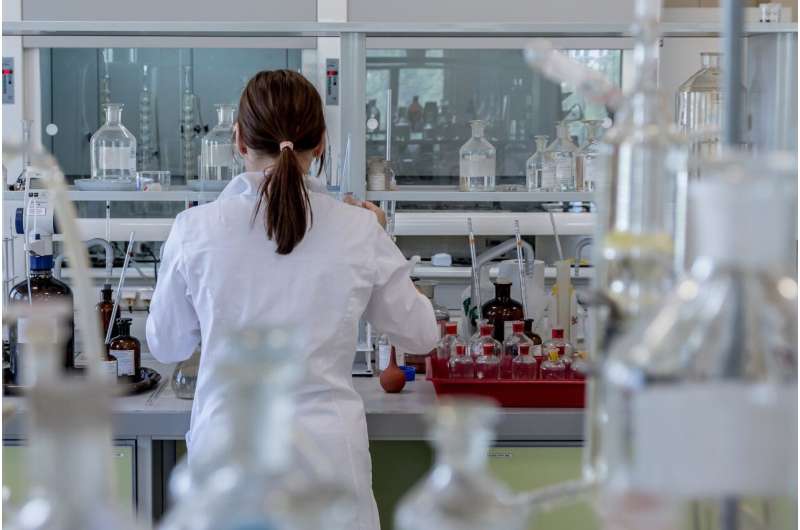Protein insights may boost lung cancer detection and treatment

Scientists investigating the mechanics of the early stages of lung cancer have identified a new potential treatment, which could also aid early detection of the disease.
Levels of a key protein—called TLR2—in tumors was found to predict a patient's survival after being diagnosed with lung cancer, their study shows. A drug compound that activates TLR2 was tested in mice and was found to reduce tumor growth in the early stages of the disease.
With the five-year survival rate from late stage lung cancer at only 6%—compared with 50% when diagnosed earlier—experts say the breakthrough could help spot the disease sooner and improve patient outcomes.
A group, led by researchers from the University of Edinburgh, discovered that TLR2 helps control some of the body's defense mechanisms when cancerous mutations occur in cells.
The protein is linked with senescence, a process whereby cells stop growing and secrete a variety of chemicals and other proteins which collectively act as warning signals and defenses against cancer.
Senescent cells are present in early lung cancers, but are no longer present in late-stage cancers, suggesting that senescence can prevent cancer progression.
Having identified TLR2's importance, the team used data from human tumor samples to confirm that patients with high levels of the protein in the early stages of lung cancer had increased survival compared to those who had lower levels.
The team then used a drug known to activate TLR2 in a mouse model of lung cancer. Researchers found that the drug reduced lung tumor growth.
Experts hope these findings could lead to research into using senescence and the associated secreted chemicals as part of a screening program to provide earlier lung cancer diagnosis.
Further research is needed, the team adds, such as clinical trials to confirm whether the drug is effective in humans.
The research is a collaboration between researchers from University of Edinburgh, University College London, University of Cantabria in Spain, the Spanish National Research Council and the Mayo Clinic in the U.S. The study is published in Cell Reports.
More information: Juan Carlos Acosta, Toll-like receptor 2 orchestrates a tumor suppressor response in non-small cell lung cancer, Cell Reports (2022). DOI: 10.1016/j.celrep.2022.111596. www.cell.com/cell-reports/full … 2211-1247(22)01461-9



















